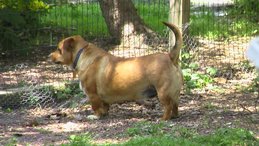
Yesterday afternoon my mom and I were having a conversation about science and religion. I don't remember what started it, but we both really enjoy science. She's a nurse and I started college as a biology major. We've both studied science in various ways and enjoy reading and learning more. We see science as a way to better understand God's creation so it is a continual source of inspiration and excitement. I commented that I didn't have very good science classes until I got to high school and had an outstanding biology teacher (and spent most of a semester learning about genetics via fruit flies!) My mom (who was once a teacher) pointed out that there aren't many public schools that offer good science education for elementary and middle school kids. We ranted about the sadness of that fact for a few minutes and then she pointed out that religion had a lot to do with that problem. And it's true. There is a dichotomy drawn between science and religion which is entirely false, but has prevailed in our culture.
The first scientists were theologians, and vice versa! They too saw science as a means of better understanding God's creation. The Church persecuted many, like Galileo, who discovered that the world wasn't the way we thought it was. And that persecution continues to impact us today. And yet the Galileo's continued to study and explore and discover, thanks be to God, and could not be silenced!
The Episcopal Church is blessed to be led by another scientist/theologian, Presiding Bishop Katherine Jefferts Schori. "'Ultimately, religion and science speak the same language, and impart the same lesson,' she says," in an article in Search Magazine. The article tells the story of her move from marine biology to priesthood and about how her scientific training shapes her leadership. More importantly, it dispels the myth that somehow science and religion are opposed to one another.





